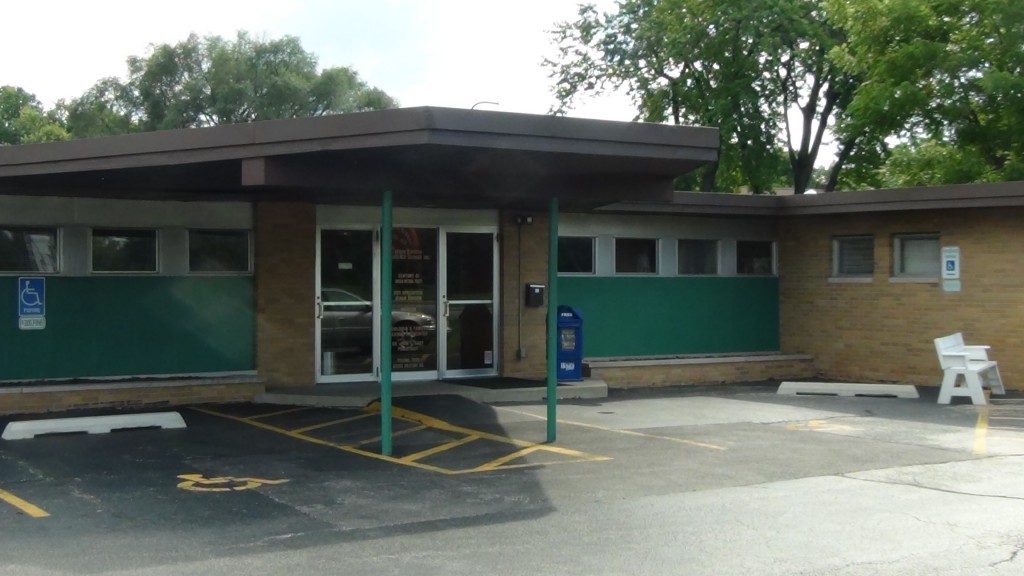Term Limits for Illinois Legislature?
September 4, 2014Photo by Tim?Rosenberger
by Tim Rosenberger
The Illinois Legislature has no term limits. None. A senator or representative can run as many times as he or she wants. Current Illinois governor, Pat Quinn, proposed an amendment to the state constitution in 1994 that would add restrictions to the amount of terms for state legislators. The bid failed to get passed.
Cut to 2014, and a similar idea is being pushed by Illinois’s Republican governor nominee, Bruce Rauner. It was turned down by the Illinois 1st Appellate Court on August 20. Rauner is not letting the decision impede his fight to make the proposal a reality.
“The notion of a citizen legislature requires that there be a refreshing of citizens serving, and when too many legislators serve too long, you need to replace them,” Lane Crothers, professor and director of assessment in the department of political science at Illinois State University, said. “The only way to guarantee that structurally is a term limit campaign.”
At least that’s what supporters of the idea say. Crothers is not so sure. More often than not, he sees it as a campaign ploy by the side that believes it will lose an election or by those who feel their preferences have been excluded by the side that usually wins.
The claim by term limit enthusiasts is that it will continually shake up the legislature and keep insider teams, made up of existing legislators and certain political interest groups, from forming and locking others out.
Invariably, though, the amendment is brought up simply as a way to bring in votes, Crothers believes.
The Committee for Legislative Reform and Term Limits is not giving in to disbelievers and continues to speak of benefits of such a legislature reform.
“The amendment makes it harder for politicians to override a governor’s veto by raising that threshold from a 3/5 majority to a 2/3 majority in both the Illinois House and Senate,” CLRTL states on its website, termlimitsandreform.com. “This reform will ensure
the best interests of all Illinoisans are protected and curtail the power of narrow, partisan or special interests.”
Enacting the limits would cause power shifts in state government, Crothers believes. The governor is one of those beneficiaries of more authority, a bigger staff and a better knowledge of topics, due to members of the legislature getting less time to learn the issues. The legislative staff would see similar gains.
“Is that a good thing or a bad thing?” Crothers said. “Well, it depends. Obviously it depends on the individual quality of the staff, but the crucial thing here is that you and I don’t elect the staff. All you or I can do is elect the actual representatives, and the staff then can become kind of a power on
their own.”
Crothers has little faith in the proposal but he does not see it as all bad. An enthused and capable legislative staff that is not elected by the people, and therefore does not have to worry about pleasing everybody for re-election, could encourage people to do the best possible work that may not make everyone happy. This would be in place of politically expedient work that attempts to please everybody.
Getting the proposal passed in the near future requires it to get on the November 2014 ballot. This is still possible but Crothers thinks it is unlikely.
A major roadblock would be getting people to kick out local legislators they like in order to fulfill the term limits. Crothers says some people, even if they do not like the state legislature or Congress, still support their resident legislator.
The term limits would not be retroactive. Current Illinois legislators who have served eight or more years would not have to leave office but instead have the countdown begin anew after the law took effect. Eventually, however, local legislators would have to step down even if they were well loved
by their citizens.
Crothers sees this proposal coming up again even it is ultimately turned down this time. It will keep resurfacing if the state legislature keeps being seen as ineffective and frustrating. If Rauner is elected it will certainly resurface, Crothers thinks.
“The idea that you can fix what’s wrong with politics by making it linked with the elections is a very common one in America,” Crothers said. “It almost never works, but it’s a very common desire.”








